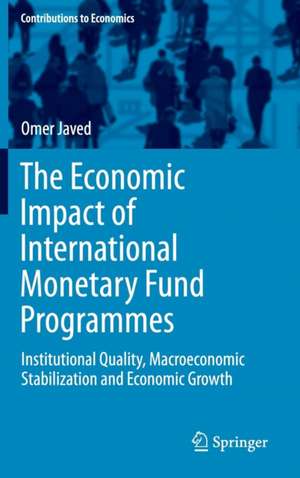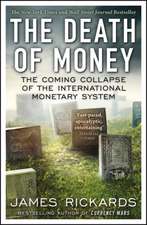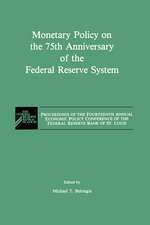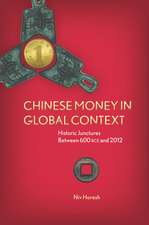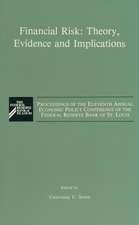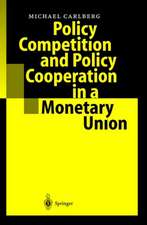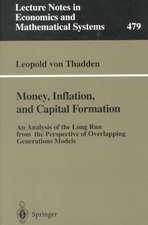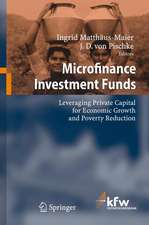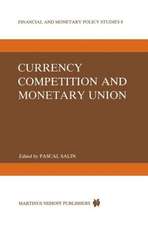The Economic Impact of International Monetary Fund Programmes: Institutional Quality, Macroeconomic Stabilization and Economic Growth: Contributions to Economics
Autor Omer Javeden Limba Engleză Hardback – 29 mar 2016
| Toate formatele și edițiile | Preț | Express |
|---|---|---|
| Paperback (1) | 379.68 lei 6-8 săpt. | |
| Springer International Publishing – 20 apr 2018 | 379.68 lei 6-8 săpt. | |
| Hardback (1) | 386.81 lei 6-8 săpt. | |
| Springer International Publishing – 29 mar 2016 | 386.81 lei 6-8 săpt. |
Din seria Contributions to Economics
- 18%
 Preț: 1001.81 lei
Preț: 1001.81 lei -
 Preț: 90.83 lei
Preț: 90.83 lei - 15%
 Preț: 649.06 lei
Preț: 649.06 lei - 18%
 Preț: 1109.92 lei
Preț: 1109.92 lei - 24%
 Preț: 657.09 lei
Preț: 657.09 lei - 18%
 Preț: 976.54 lei
Preț: 976.54 lei - 17%
 Preț: 361.03 lei
Preț: 361.03 lei - 18%
 Preț: 1027.83 lei
Preț: 1027.83 lei -
 Preț: 283.93 lei
Preț: 283.93 lei - 15%
 Preț: 644.95 lei
Preț: 644.95 lei - 15%
 Preț: 638.24 lei
Preț: 638.24 lei -
 Preț: 394.29 lei
Preț: 394.29 lei - 15%
 Preț: 636.80 lei
Preț: 636.80 lei - 15%
 Preț: 637.78 lei
Preț: 637.78 lei - 18%
 Preț: 723.69 lei
Preț: 723.69 lei - 15%
 Preț: 635.47 lei
Preț: 635.47 lei - 15%
 Preț: 634.00 lei
Preț: 634.00 lei -
 Preț: 392.75 lei
Preț: 392.75 lei -
 Preț: 383.33 lei
Preț: 383.33 lei - 15%
 Preț: 637.28 lei
Preț: 637.28 lei - 15%
 Preț: 636.80 lei
Preț: 636.80 lei - 18%
 Preț: 950.96 lei
Preț: 950.96 lei - 15%
 Preț: 634.68 lei
Preț: 634.68 lei -
 Preț: 387.38 lei
Preț: 387.38 lei - 15%
 Preț: 647.27 lei
Preț: 647.27 lei - 15%
 Preț: 636.63 lei
Preț: 636.63 lei - 15%
 Preț: 639.73 lei
Preț: 639.73 lei -
 Preț: 385.62 lei
Preț: 385.62 lei - 15%
 Preț: 641.85 lei
Preț: 641.85 lei - 20%
 Preț: 649.60 lei
Preț: 649.60 lei - 15%
 Preț: 641.71 lei
Preț: 641.71 lei -
 Preț: 387.96 lei
Preț: 387.96 lei - 15%
 Preț: 645.47 lei
Preț: 645.47 lei -
 Preț: 385.08 lei
Preț: 385.08 lei - 15%
 Preț: 646.62 lei
Preț: 646.62 lei -
 Preț: 383.33 lei
Preț: 383.33 lei - 15%
 Preț: 638.43 lei
Preț: 638.43 lei -
 Preț: 381.21 lei
Preț: 381.21 lei - 15%
 Preț: 642.51 lei
Preț: 642.51 lei - 15%
 Preț: 637.78 lei
Preț: 637.78 lei - 15%
 Preț: 641.71 lei
Preț: 641.71 lei -
 Preț: 384.70 lei
Preț: 384.70 lei -
 Preț: 379.86 lei
Preț: 379.86 lei -
 Preț: 378.34 lei
Preț: 378.34 lei -
 Preț: 384.70 lei
Preț: 384.70 lei -
 Preț: 388.52 lei
Preț: 388.52 lei - 15%
 Preț: 641.71 lei
Preț: 641.71 lei -
 Preț: 381.00 lei
Preț: 381.00 lei - 15%
 Preț: 644.95 lei
Preț: 644.95 lei -
 Preț: 386.00 lei
Preț: 386.00 lei
Preț: 386.81 lei
Nou
Puncte Express: 580
Preț estimativ în valută:
74.02€ • 80.38$ • 62.18£
74.02€ • 80.38$ • 62.18£
Carte tipărită la comandă
Livrare economică 23 aprilie-07 mai
Preluare comenzi: 021 569.72.76
Specificații
ISBN-13: 9783319291772
ISBN-10: 3319291777
Pagini: 240
Ilustrații: XXI, 125 p. 2 illus. in color.
Dimensiuni: 155 x 235 x 15 mm
Greutate: 0.39 kg
Ediția:1st ed. 2016
Editura: Springer International Publishing
Colecția Springer
Seria Contributions to Economics
Locul publicării:Cham, Switzerland
ISBN-10: 3319291777
Pagini: 240
Ilustrații: XXI, 125 p. 2 illus. in color.
Dimensiuni: 155 x 235 x 15 mm
Greutate: 0.39 kg
Ediția:1st ed. 2016
Editura: Springer International Publishing
Colecția Springer
Seria Contributions to Economics
Locul publicării:Cham, Switzerland
Cuprins
Introduction.- Determinants of Institutional Quality: a Case Study of IMF Programme Countries.- Institutional Quality, Macroeconomic Stabilization and Economic Growth: a Case Study of IMF Programme Countries.- IMF Programmes andInstitutional Quality Determinants: Economic Scenarios in Pakistan.- ConcludingRemarks.
Notă biografică
Omer Javed holds a PhDin Economics degree from the University of Barcelona (Spain). He previouslycompleted his masters in economics from the University of York (UnitedKingdom), and earlier from Government College University Lahore (Pakistan). Inhis doctoral thesis, he focused on the frameworks and determinants ofinstitutions, and their impact on macroeconomic stability, and economic growthin International Monetary Fund (IMF) member countries. In 2015, a researchpaper, related but not a part of his doctoral thesis, ‘Institutionaldeterminants: a case study of IMF programme and non-programme countries’ waspublished as a chapter in the book, ‘The Political Economy of Governance: Institutions,Political Performance and Elections’ (Springer 2015). His work experience spansboth the public and private sectors. Moreover, his work as an economist at theResident Representative Office of IMF in Pakistan served as a strong motivationin his choice of specialization in the doctoral thesis.
Textul de pe ultima copertă
This book investigates the impact of International Monetary Fund (IMF) programmes on macroeconomic instability and economic growth in recipient countries. Employing the New Institutional Economics approach as an analytical framework, it identifies the determinants of economic and political institutional quality by taking into account a broad variety of indicators such as parliamentary forms of government, the aggregate governance level, civil and economic liberties, property rights etc. The book subsequently estimates the impact of these institutional determinants on real economic growth, both directly and also indirectly, through the channel of macroeconomic instability, in recipient countries. Moreover, it illustrates the effectiveness of IMF programmes in the case of Pakistan, a frequent user of IMF resources.
Caracteristici
Demonstrates how New Institutional Economics can be applied to improve IMF programmes Identifies the determinants of economic and political institutional quality Provides a case study of IMF programmes and institutional quality determinants in Pakistan
